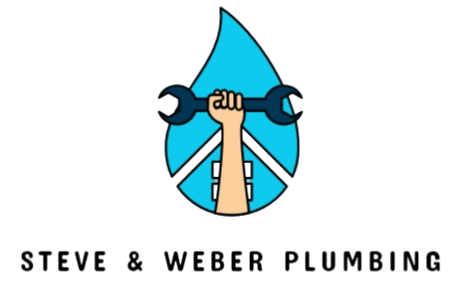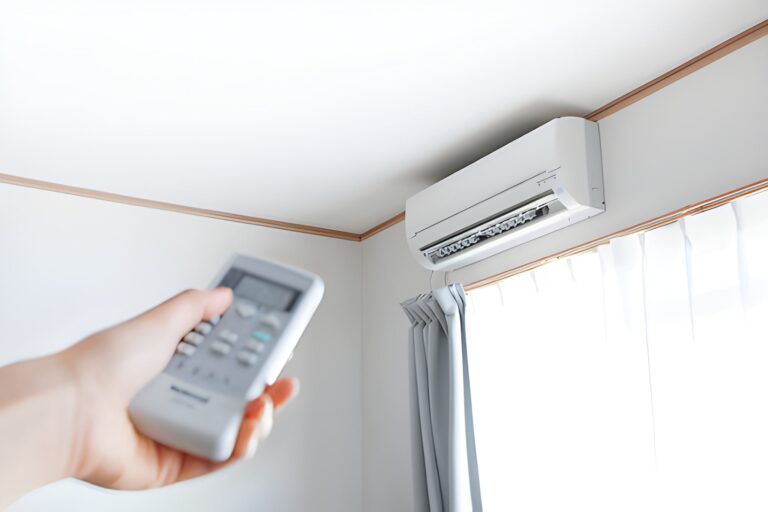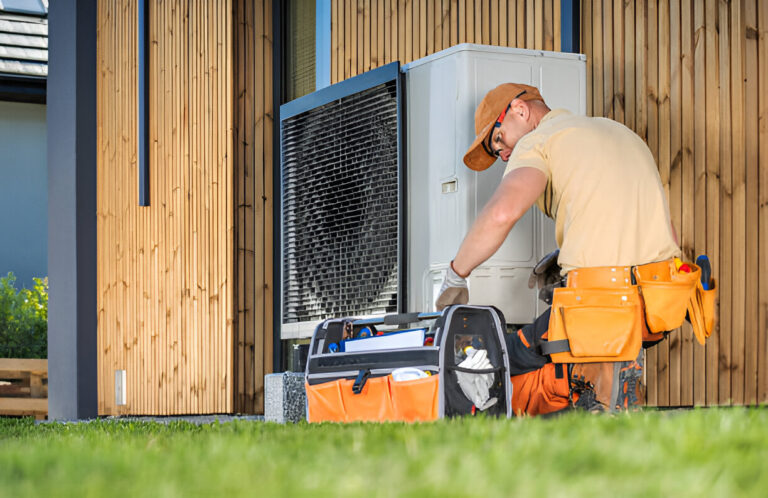If your water heater is making noise, you’re not alone. Many homeowners notice strange sounds coming from their tank, popping, banging, hissing, rumbling, or even humming. These sounds can happen with both gas and electric water heaters and may occur whether you have a traditional storage tank or a tankless system.
While some noises are harmless and simply part of normal operation, others can be early warning signs of sediment buildup, loose parts, water pressure problems, or even a failing heating element. Ignoring these noises could lead to reduced efficiency, higher energy bills, costly repairs, or complete system failure.
In this guide, we’ll break down the most common types of water heater noises, what each sound typically means, simple DIY fixes you can try, when it’s best to call a professional, and how to prevent the problem from coming back.
Is It Normal for a Water Heater to Make Noise?
Yes, to some extent. It’s common for a water heater to make subtle noises as it heats water. The gentle swish of water movement or faint clicking sounds from the tank’s metal parts expanding under heat are normal and nothing to worry about.
However, loud, frequent, or unusual noises are a red flag that something might be wrong. For example:
- Popping or rumbling – Often caused by sediment buildup on the bottom of the tank, which traps water bubbles and makes them burst noisily.
- Banging or knocking – Could be the result of high water pressure or a phenomenon called water hammer, where water flow stops abruptly and shakes the pipes.
- Hissing – Frequently points to a leak or a malfunctioning heating element.
If you start hearing new, louder, or more frequent sounds, it’s best to investigate immediately or call a professional plumber. Catching the problem early can save you from costly repairs or even a full water heater replacement.
Common Causes of a Water Heater Making Noise
A noisy water heater isn’t just an annoyance, it’s often a sign that something inside the tank or plumbing system needs attention. While some sounds are harmless, others could be early warnings of a serious problem. Below are the most common and credible causes, explained in detail:
1. Sediment Buildup
If you have hard water meaning it contains higher levels of minerals like calcium and magnesium sediment will naturally settle at the bottom of your water heater over time. When the heating element or burner heats the water, steam bubbles form underneath the sediment layer. As these bubbles burst through the hardened layer of minerals, they create a popping or rumbling sound.
- Why it matters: Sediment not only causes noise but also acts like an insulating layer, forcing your water heater to work harder. This can increase your energy bills, slow down heating, and lead to overheating that damages the tank.
- Example: Imagine trying to boil water with a thick layer of sand at the bottom of the pot, it takes longer, wastes energy, and can crack the pot. That’s essentially what’s happening inside your tank.
- Fix: Drain and flush your water heater at least once a year (or more often in hard water areas) to prevent sediment buildup.
2. Water Hammer
Water hammer is a plumbing term for the loud banging or thumping sound you hear when water flow suddenly stops, for example, when a washing machine valve closes quickly. The force of the water abruptly hitting a closed valve creates a shock wave that reverberates through the pipes, sometimes shaking the water heater.
- Why it matters: Repeated water hammer can loosen fittings, damage valves, or even dent the tank over time.
- Example: It’s like slamming on the brakes in a moving car, the sudden stop jolts everything forward.
- Fix: Install a water hammer arrestor, adjust water pressure, or replace fast-closing valves with slower-closing ones.
3. High Water Pressure
If your home’s water pressure exceeds 60 psi, it can make your plumbing and your water heater much noisier. Excessive pressure can cause hissing, whistling, or even knocking sounds as water moves forcefully through the system.
- Why it matters: High pressure can shorten your water heater’s lifespan, stress seals and gaskets, and increase the risk of leaks.
- Example: Think of blowing air through a straw slowly versus forcefully the faster air makes more noise and puts more strain on the straw.
- Fix: Use a pressure gauge to check your home’s water pressure. If it’s too high, have a plumber install a pressure-reducing valve (PRV) to bring it into the safe 40–60 psi range.
4. Loose Heating Elements
In electric water heaters, heating elements are secured to the tank with bolts. Over time, vibrations, thermal expansion, or poor installation can cause them to loosen slightly. When the element is energized, it may vibrate against the tank wall, creating a low humming or buzzing sound.
- Why it matters: A loose element won’t transfer heat efficiently, which can increase energy costs and wear it out prematurely.
- Example: Picture a tuning fork vibrating, the loose element resonates in a similar way.
- Fix: Turn off the power, drain some water from the tank, and tighten the element using the proper tool. If it’s damaged, replace it.
5. Leaks
A hissing or sizzling sound may mean water is dripping onto hot components, like the burner or heating element. This could be due to loose fittings, a faulty valve, or in the worst case, a leak from the tank itself.
- Why it matters: Even a tiny leak can lead to major water damage if ignored. If the tank itself is leaking from the bottom, replacement is usually the only option.
- Example: Similar to the sound of water dripping on a hot skillet, a quick sizzle every time it hits the hot surface.
- Fix: Inspect all visible connections and valves for moisture. Tighten or replace faulty parts immediately, and if the leak is from the tank body, schedule a replacement.
6. Expansion and Contraction of Metal
As your water heater heats and cools, the metal tank and internal parts expand and contract. This movement can cause ticking, creaking, or popping noises, especially in older units.
- Why it matters: Usually harmless, but if the noises get louder or more frequent, it may mean certain parts are under excess stress or not secured properly.
- Example: Similar to the sounds your house makes at night as the temperature changes, just on a smaller scale inside your water heater.
- Fix: Monitor for changes, and if the noise worsens, check for loose parts or pressure problems.
7. Faulty or Aging Components
Over time, parts like the anode rod, dip tube, or temperature and pressure (T&P) relief valve can wear down, corrode, or break apart. This can cause rattling, clanging, or clicking noises as loose pieces move around inside the tank.
- Why it matters: Ignoring worn-out parts can lead to leaks, reduced efficiency, and corrosion inside the tank.
- Example: Imagine shaking a jar with a loose screw inside, the constant movement causes noise and can scratch the interior.
- Fix: Have a professional inspect the internal components during annual maintenance and replace any worn or broken parts.
How to Fix a Water Heater Making Noise
Always turn off the power supply (for electric heaters) or set the gas control to “Pilot” before starting any work.
1. Flush the Tank
Sediment buildup is a leading cause of popping or rumbling noises. Flushing helps remove the debris and restores efficiency.
Steps:
- Turn off the power or gas supply.
- Connect a garden hose to the drain valve at the bottom of the tank.
- Place the hose end into a floor drain or outside area.
- Open the drain valve and let water flow until it runs clear.
- Close the valve, remove the hose, and refill the tank.
- Restore power or gas supply.
2. Tighten or Replace Loose Heating Elements
A humming sound in electric heaters often means the heating elements are loose. Use a wrench to tighten them. If an element is damaged or corroded, replace it following manufacturer guidelines.
3. Install a Water Softener or Filter
Hard water causes mineral buildup, leading to crackling and popping sounds. Installing a water softener or sediment filter can:
- Reduce scale deposits
- Lower noise levels
- Improve water heater efficiency
4. Check and Adjust Water Pressure
Excessive water pressure can cause banging or hammering sounds.
- Use a water pressure gauge to measure household pressure.
- Ideal range: 40–60 psi.
- If pressure is too high, install or replace a pressure-reducing valve (PRV).
5. Call a Professional Plumber
If the noise continues after basic maintenance:
- A licensed plumber can inspect for damaged components, leaks, or safety issues.
- They can replace parts like the anode rod, dip tube, or thermostat if needed.
- Professional servicing ensures your heater runs safely and efficiently.
Preventing Water Heater Noises
Keeping your water heater quiet starts with regular care and preventive steps.
- Flush the Tank Annually: Removes sediment before it can harden and cause rumbling or popping.
- Test the Pressure Relief Valve: Ensures the valve opens correctly to release excess pressure and prevent banging or safety hazards.
- Insulate Hot Water Pipes: Reduces noise from thermal expansion and prevents “knocking” sounds in plumbing.
- Install a Water Softener: Minimizes mineral deposits that lead to crackling and popping sounds.
- Schedule Annual Professional Inspections: A plumber can detect small issues before they cause major noise or costly repairs.
When to Repair vs. Replace Your Water Heater
If your water heater is making noise, one of the biggest questions homeowners face is whether to repair or replace it. Choosing the right option can save you money, improve efficiency, and prevent future breakdowns.
When to Repair a Water Heater
Consider repairing your water heater if:
- It’s Less Than 8 Years Old: Most water heaters last 8–12 years, so newer units often just need minor fixes.
- Noise Comes from Sediment Buildup: Flushing the tank can solve popping or rumbling sounds.
- Loose or Worn Parts Are the Cause: Replacing heating elements, the anode rod, or valves is cost-effective.
- No Other Performance Issues Exist: If the water stays hot and your energy bills are normal, repairs are usually enough.
When to Replace a Water Heater
Replacement may be the smarter choice if:
- It’s 10 Years Old or More: Older units lose efficiency and are more likely to leak.
- Repairs Are Frequent and Expensive: If repair costs are adding up, a new unit can be more cost-effective.
- Rust or Corrosion Is Present: Rust inside the tank can’t be reversed and will eventually cause leaks.
- The Tank Is Leaking: A leaking water heater tank must be replaced, it can’t be patched.
- Performance Has Dropped Significantly: Struggling to get hot water or higher-than-normal energy bills signal it’s time to upgrade.
Cost to Fix a Noisy Water Heater
The cost to repair a noisy water heater can vary depending on the cause, the type of heater you own, and whether you hire a professional or do the work yourself. On average, homeowners spend $100–$500 to resolve water heater noise issues.
Common Noise Problems and Repair Costs
| Problem / Fix | Average Cost (Professional) | DIY Cost Range |
| Tank flushing to remove sediment | $100 – $200 | $0 – $30 |
| Replacing heating element (electric) | $150 – $350 | $25 – $60 |
| Installing a water softener (hard water) | $800 – $2,500 | N/A |
| Adjusting/replacing pressure-reducing valve | $150 – $300 | $50 – $120 |
| Replacing anode rod | $150 – $300 | $20 – $60 |
| Full water heater replacement | $900 – $3,500+ | N/A |
Factors Affecting Cost:
- Type of water heater – Gas, electric, tank, or tankless units have different repair costs.
- Extent of the problem – Minor fixes like tightening parts cost far less than replacing major components.
- Local labor rates – Plumbers typically charge $50–$150 per hour.
- Preventive add-ons – Installing a water softener or sediment filter increases upfront costs but reduces future noise and repairs.
Final Thoughts
A noisy water heater is more than just an annoyance, it’s often a warning sign. Quick maintenance can solve minor issues, but older or damaged units may need replacement.For fast, reliable repairs in your area, contact your local licensed plumber today and restore your hot water system’s quiet, efficient performance.


